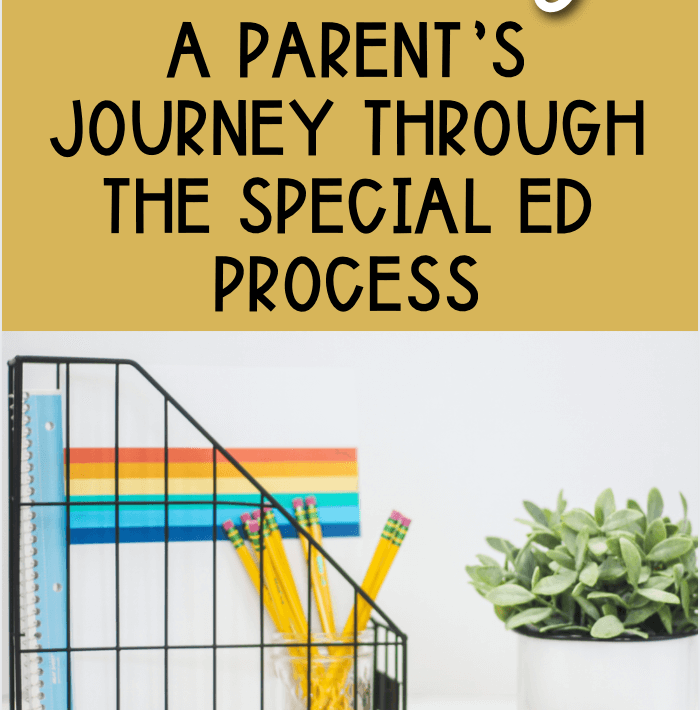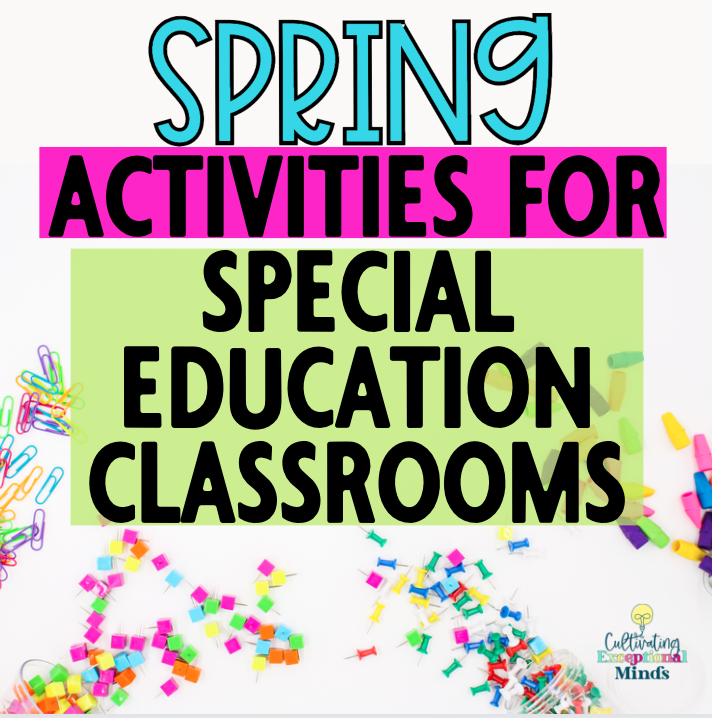Balance. It sounds great, doesn’t it? Like those women who do intense yoga and can balance the weight of their entire bodies on one hand. Impressive? Yes. Possible for most of us? Not exactly. And I picture those childhood toys where you had to carefully put little weights or pretend pieces of fruit on both sides until they balanced perfectly. One weight too many and one of the sides would droop sadly. Sometimes it seemed impossible to get those two sides exactly even. What can seem even more impossible? Balancing teaching and family.
Trying to balance life as a special education teacher and a mom can feel like an unreachable goal. But I’m here to help. And I brought a friend!
Meet Rebekah Poe. She is a special education teacher and mom to a first-grader. Rebekah can be found at Lessons and Lattes and on Instagram, where she shares relatable tips for special ed teachers. And today, she’s sharing that knowledge with us.
Rebekah started her career in education as a paraprofessional. She loved it so much that she decided to pursue a degree in Special Education. Juggling her school “kids” and life at home as a mom to a kiddo of her own takes practice. It takes boundaries. And creativity. And very likely a sense of humor. She takes us through some of the places she spends her time and how she finds balance there.
Resource Room
A resource room is a location separate from the general education classroom where students come for direct instruction. It is vital to find ways to build communication and collaboration between the general ed and special ed teachers. It’s also crucial to be flexible. You may have a beautiful lesson on short vowel sounds planned for the day. But when a student comes to you with an immediate need – emotional, behavioral, or academic – that trumps short vowels.
Boundaries
Distance learning has presented challenges to teachers of every type across the country. Heck, across the world. Rebekah found she needed to put some boundaries into place to help keep some balance in her “new normal.” She established set office hours when she was available. When your classroom and your home are one in the same, it’s easy to work at all times of the day. Setting office hours, while maintaining flexibility and availability for parents with challenging schedules of their own, was a big help.
More Boundaries
You’re probably noticing a theme. Flexibility and boundaries are words that keep coming up when you’re talking about seeking balance. When balancing the duties of a teacher with those of a mom, setting and keeping boundaries is key. Practice (and be okay with failing from time to time) leaving work during work hours. When you’re with your family, be with your family. And if you just can’t fight the urge to teach, incorporate some lessons into family fun time like when playing games and cooking. Your kids won’t even notice they’re learning.
Must Haves
It’s tempting to try to solve all of your own problems. But it’s not smart. And it’s usually not possible. Rebekah shared four things every special ed teacher must have as she works toward achieving balance.
- Teacher bestie – You can vent to your husband or mom or sister about challenges and frustrations you face as a special ed teacher. But there is simply no substitute for a fellow teacher who just “gets it.”
- Willingness to problem-solve – There is no magical manual that tells you all you need to know as a special education teacher. Or any teacher for that matter. But being willing to dig in, use your resources, and research possible solutions will help you be more effective and be seen as someone who gets it done.
- Willingness to ask questions – It’s also important to know when it’s time to ask for help. Get to know who the right people are to go to for solutions, resources, suggestions, and more.
- A collaborative spirit – You will not be successful if you are not willing to collaborate. Teaching takes teamwork. Special education teaching takes a LOT of teamwork. Being a strong team player benefits you, your team, and your students.
Listening Heart
Part of keeping balance in your life is keeping your emotions in balance. When a student presents behaviors that are NOT what you’re looking for, it can be difficult to keep your own emotions in check. By remembering that behavior is a type of communication, and listening with your heart more than your ears, you can stay calm and in control of the situation. And you are more able to help your student manage what is causing the behavior.
Another step in working toward balancing teaching and family more effectively is gaining efficiency in your teaching. More efficiency equals less time. And less time teaching equals more time for your family. Check out this blog post where I talk about forms and resources that will make your life easier as a SPED teacher.
Tip: One of my favorite teacher supplies, Flair pens, makes a terrific behavior management tool. Teachers aren’t the only ones who love writing with them!
I know I picked up some tips about balancing teaching and family that I plan to try. I’m betting you did, too. When you put them into practice, pop over to see me on Instagram and let me know how it went!










